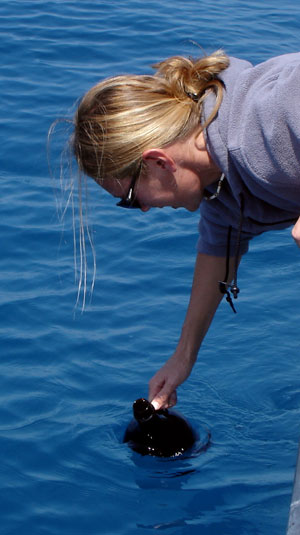Water quality
Water quality describes the condition of the water,
including chemical, physical, and biological characteristics, usually with
respect to its suitability for a particular purpose such as drinking or
swimming. :)
Water quality describes the condition of the water,
including chemical, physical, and biological characteristics, usually with
respect to its suitability for a particular purpose such as drinking or
swimming. :)
Water quality is measured by several factors, such as
the concentration of dissolved oxygen, bacteria levels, the amount of salt (or
salinity), or the amount of material suspended in the water (turbidity). In
some bodies of water, the concentration of microscopic algae and quantities of
pesticides, herbicides, heavy metals, and other contaminants may also be
measured to determine water quality.
What is in that water that you just drank? Is it just hydrogen and oxygen atoms? Is it safe for drinking? All water is of a certain "quality" (and you can't tell by just looking), but what does "water quality" really mean? Water full of dirt and grime might work fine for a tomato plant but would you want to drink it? Water quality can be thought of as a measure of the suitability of water for a particular use based on selected physical, chemical, and biological characteristics.
..
What Is Water Pollution?
Water pollution occurs when harmful substances—often
chemicals or microorganisms—contaminate a stream, river, lake, ocean, aquifer,
or other body of water, degrading water quality and rendering it toxic to
humans or the environment.
What Are the Causes of Water Pollution?
Water is uniquely vulnerable to pollution. Known as a
“universal solvent,” water is able to dissolve more substances than any other
liquid on earth. It’s the reason we have Kool-Aid and brilliant blue
waterfalls. It’s also why water is so easily polluted. Toxic substances from
farms, towns, and factories readily dissolve into and mix with it, causing
water pollution.
Although scientific measurements are used to define
water quality, it is not a simple thing to say “that water is good” or “that
water is bad.” So, the determination is typically made relative to the purpose
of the water is it for drinking or to wash a car with or for some other
purpose?
Poor water quality can pose a health risk for people.
Poor water quality can also pose a health risk for ecosystems.
In the Florida Keys, good water quality is essential
to a healthy marine ecosystem. Seagrass and coral reef communities thrive in
clean water that is relatively low in nutrients. Too many nutrients in the
water can cause excess growth of algae, which can smother corals and seagrass.
Pollutants such as metals, oils, pesticides, and fertilizers run off from land
into the waters, causing excess algae growth and other harmful impacts.
Within Florida Keys National Marine Sanctuary,
recommendations for actions to restore and maintain water quality conditions
needed to sustain healthy plant and animal populations are generated through
the Water Quality Protection Program.
There are things you can do to prevent degradation to
sanctuary waters, such assupporting and participating in advanced wastewater
treatment programs that remove unwanted nutrients and harmful bacteria, using
“pump-out” stations for your vessel’s sanitation device, using as many “green”
products as possible at home, and reducing or eliminating the use of
fertilizers, herbicides, and pesticides.
Water quality Water quality describes the condition of the water, including chemical, physical, and biological characteristics, usually ...
